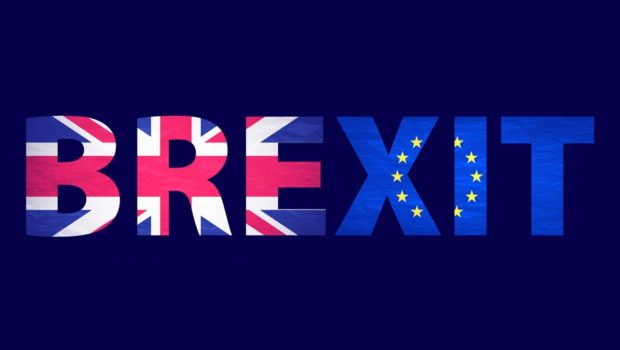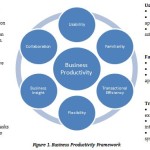The Impact of Brexit and Tech Firms Operating in Central and Eastern Europe
Brexit has, without a doubt, brought a level of uncertainty into the European business world. Two years of negotiation, renegotiation, and dispute amongst British politicians has given business leaders the opportunity to analyze their business strategy in an evolving market. For some, the uncertainty has compelled them to consider whether Britain is the right place to hold their base of operations.
Considering the close ties that have been forged between Central and Eastern Europe and Britain over the course of forty years, it is perhaps unsurprising that some businesses are considering the prospect of operating out of these states. Many of them command an excellent talent roster and combined with business and financial needs it is useful to consider what will make CEE a market to be reckoned with post-Brexit.
In particular, tech firms and startups have been implementing contingency plans in order to avoid losing out on both revenue and the excellent talent that Eastern Europe has to offer. Already startups are starting to look closely at how countries like Estonia and Lithuania are making their offer more attractive to technology firms.
How to Expand your Business across Europe
Taxation
The ways in which taxation of products and services across the EU are likely to be affected in some complex and unforeseeable ways. For larger companies, it may mean some restructuring in order to avoid potentially detrimental tax regulation, but for smaller technology startups these complications make the prospect of remaining in cities like London less attractive.
The UK holds a fairly unique position currently, in that, unlike many other member states, it does not impose withholding tax on dividends. Much of the regulation on how the UK and countries dealing with the UK apply controls on dividends is set out in the Parent Subsidiary Directive. This means that EU based companies, such as engineering companies in Slovakia, enjoy some tax relief on their subsidiaries in the UK.
But once the UK withdraws, it will no longer be under the jurisdiction of the Directive. This has thrown up an issue for both countries in the EU and for the UK. Companies whose main operations are in the UK will be subject to EU member states taxation. For a start, this means that any subsidiary based in Europe will start receiving dividends that are subjected to EU withholding tax.
As the UK withdraws it will have to seek ways of amending individual tax treaties to replace EU regulations. The difficulty is that many countries will be reluctant to give up the prospect of a dividend withholding tax in return for a tax treaty that may leave it worse off. In addition, as the UK doesn’t impose withholding tax on dividends it has very little to bargain with, and any treaties it could negotiate will take a long time to come into effect.
“Another issue that companies based in the UK may face are discriminatory tax measures by individual countries,” writes Sandra Vogel, an author at Researchpapersuk and Last Minute Writing, “In the past, EU countries that have sought to protect themselves against discriminatory tax regulation, and have had recourse to the European Court. Once the UK has left the EU, it will no longer have this protection, leaving it potentially open to abuse.“
In the CEE, we have seen countries such as Romania start to roll out tax cuts in order to attract entrepreneurs. The standard corporate income tax for businesses based in Romania is 16%, and unlikely to change any time soon. With the UK losing the benefit of the Parent-Subsidiary Directive, UK companies that are trading with Romania will be slapped with an additional 5% withholding tax on dividends. In contrast, neighboring CEE countries will continue to benefit from the directive. For smaller tech companies these extra costs will simply not be cost effective.
Tariffs
One of the big issues that Brexit has thrown up is how trade at the borders will transform in the event of a no deal. There will need to be a wholesale renegotiation between the UK and EU countries in trade agreements. There is little understanding of how this will play out as this level of renegotiation is unprecedented. If the UK defaults to a WTO schedule, it is tempting to believe it will seek to emulate other WTO countries or even copy EU rules. However, international pressure has been put on the UK to enter negotiations more thoroughly, rather than a ‘cut and paste’ approach.
This means that, in general, no one can predict how much UK trade is going to concede in terms of how tariffs are negotiated. In acquiring the necessary materials to produce technology, the prospect of negotiating a more complex supply chain will cause tech firms some concern.
With a slower supply chain for such materials, it will be hard for startups to maintain a competitive edge. For those who retain London as their base of operations, more complex import and export procedures are likely to mean learning new modes of operation. Combined with potentially increased costs of supply, this makes for a worrying outlook in terms of the importing and exporting products.
Getting Serious About Supply Chain Analytics
Countries such as Poland have emerged as a serious competitor to pick up the shortfall. Poland has very low operational costs, and once many of the most talented who have previously worked in the UK return, we are likely to see a very competitive talent roster for tech startups to choose from. The high level of education and general excellence in language ability will make Poland a market to be watched as the UK withdraws.
Talent
By far one of the biggest concerns for tech startups is the prospect of losing out on competitive talent. Emerging technology has been the center of innovation for some time, and many of the best and brightest have previously settled in London to carve out a career. A fifth of all tech jobs in London are filled by Eastern Bloc immigrants, but increasingly, many are starting to turn down work in the UK.
Anticipating the issue of brain drain, the UK government has attempted to allay fears by introducing emergency measures to retain talent. In 2018 they announced a plan to roll out double the amount of ‘tier one’ visas in order to attract exceptional talent. For smaller startups, however, this has done very little to reduce skepticism of the value of a UK tech base of operations. Where freedom of movement has, in the past offered substantially low cost of employing those from within the EU, the prospect of paying out for a visa is not attractive.
In contrast, CEE countries have rolled out plans in order to provide low-risk alternatives to London. Lithuania, in particular, has changed regulations, specifically in order to attract UK talent. For example, the Bank of Lithuania has created an e-licensing tool for financial tech firms. This licensing tool will make it easier for financial tech startups to obtain a banking license, effectively bypassing the complex regulations which are likely to arise after Brexit. In fact, the e-license has already attracted eight UK fintech startups to Lithuania.
How Technology is Helping to Improve and Streamline the Recruitment Process
“Estonia’s capital, Tallinn is likely to become an enticing prospect for tech start-ups,” suggests Scott Trower, a regular contributor to Draftbeyond and Writinity, “Estonia has long been regarded as a centre of excellence when it comes to talented engineers. In the past many Estonians would have taken jobs in London, but Tallinn and the Estonian government are keen to retain their best technology professionals. “
There is now an opportunity for cities like Tallinn to become global hubs of entrepreneurship. With lower employment costs and improving standards of living, though they may currently fall behind New York and London, they are yet are likely to become more and more attractive to Tech firms.
Author Bio:
Inna is an experienced business analyst who writes on all aspects of business development at Lucky Assignments and Gum Essays. She is passionate about helping clients strategize for business and identify opportunities to expand their market.















